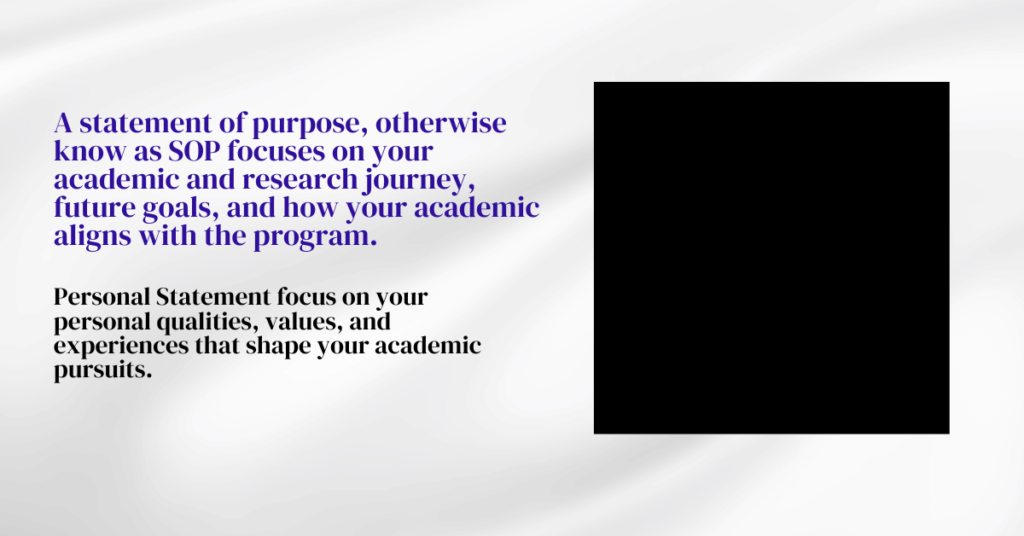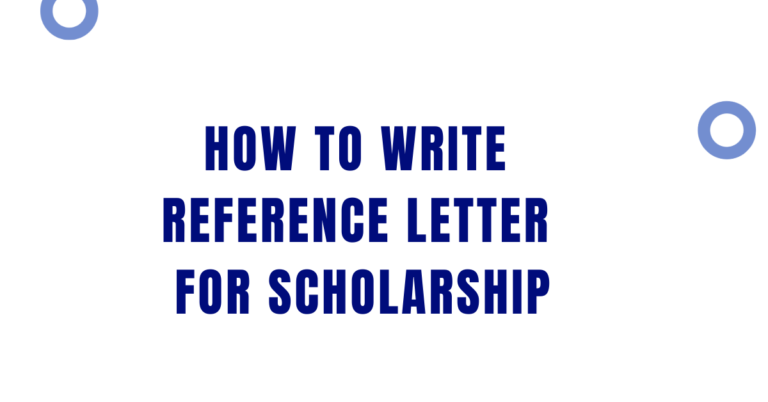Wondering about the difference between personal statement and statement of purpose? The focus and tone are two key distinguishing factors. While both are essential for scholarship applications, they are not the same.
Many applicants don’t know this, and so they use them interchangeably. This is a grievous mistake that can stymie your application.
Many candidates, when asked to write a personal statement, sometimes go ahead to write a statement of purpose without actually knowing.
They do not know that the documents differ in tone and sometimes in length.
Understanding the differences can, therefore, make all the difference in your writing. Because, imagine if you’re asked to write a statement of purpose, but you unknowingly tilt towards a personal statement. That’s like an ‘F’ grade. Aside from that, it shows clearly that you don’t follow instructions.
Here, I’ll explain the core difference between a personal statement and a statement of purpose and also give you samples to showcase them.
Without further ado, let’s dive in!
Difference Between Personal Statement and Statement of Purpose
The Statement of Purpose (SOP)
The idea of a statement of purpose is to convince the scholarship committee to offer you the scholarship. Below are the differences between statement of purpose and personal statement:
1. Focus: A statement of purpose, otherwise know as SOP focuses on your academic and research journey, future goals, and how your academic aligns with the program.
Then the content of the document talks about:
- Motivation: Explain why you’re passionate about the chosen field and why you seek a PhD.
- Qualifications: Discuss relevant academic achievements, research experience, and skills.
- Program Fit: Demonstrate how your interests align with specific faculty research and program offerings.
- Future Plans: Talk about your career aspirations and how the program will equip you to achieve them.
Writing Style: Formal, concise, and analytical.
In doing so, the SOP answer to the following questions:
- Why did you choose this school? Your SOP is used to tell the reader the reason you applied to the school among other options out there.
- Which field of research you are passionate about and why you’re passionate about it? Essentially, it should relate to your scholarship application.
- Why you can’t pursue it in your country? Yes, this is a very important question you must provide in your statement of purpose. The committee want to know why you decide to pursue the study outside of your home.
- What do you want to gain from this academic experience?
- How has your background prepared you to develop this interest?
- What are your career goals?
- If you didn’t score well in certain tests/courses, the SOP is the avenue where you explain why and what you learn from that failure.
The Personal Statement:
Focus: This focus on your personal qualities, values, and experiences that shape your academic pursuits.
Motivation: Share personal stories and experiences that ignited your passion for the chosen field.
Skills and Values: Discuss relevant skills and personal qualities that make you a strong candidate.
Challenges and Growth: Discuss any obstacles you’ve overcome and how they shaped your approach to academic challenges.
Style: More personal and engaging, showcasing your unique voice and narrative.

Samples
Personal Statement Sample:
Growing up in a small, rural town, access to advanced technology was limited. However, my curiosity about the natural world never wavered. I spent countless hours exploring local forests, collecting rocks, and meticulously documenting my findings in hand-drawn notebooks. This early fascination with the intricate details of nature blossomed into a deep passion for environmental science.
In high school, I excelled in science courses, particularly ecology and biology. Eager to gain practical experience, I volunteered at the local wildlife rehabilitation center, where I cared for injured animals and learned about conservation efforts. This experience solidified my desire to pursue a career in environmental protection.
While I have a strong academic record and a proven commitment to environmental stewardship, financial limitations pose a significant challenge to attaining my educational goals. Receiving this scholarship would alleviate the financial burden and allow me to fully dedicate myself to my studies. My ultimate goal is to become a research scientist and contribute to the development of sustainable solutions for environmental challenges.
Statement of Purpose Sample:
My passion for literature ignited during a high school debate team competition centered around the works of Toni Morrison. Immersing myself in her novels opened my eyes to the power of language to explore complex social issues and inspire change. This experience propelled me towards English Literature, where I aim to delve deeper into the cultural and historical context that shapes narratives.
Throughout my undergraduate studies, I consistently sought opportunities to broaden my understanding of literature. I participated in a semester-long study abroad program in London, where I explored the works of British authors in their historical contexts. Additionally, I actively participated in literary criticism seminars, honing my analytical and communication skills. My undergraduate thesis explored the portrayal of female characters in the works of Jane Austen, demonstrating my in-depth research and critical thinking abilities.
I am particularly interested in pursuing a graduate program at [University Name] due to its renowned faculty and focus on [specific area of interest within literature]. I am confident that the program’s rigorous curriculum and research opportunities will allow me to refine my research skills and contribute meaningfully to the field of literary criticism. Upon graduation, I aspire to pursue a career in academia, sharing my passion for literature and inspiring future generations of readers and scholars.


![5 Samples of Winning 500 Word Personal Statement for Scholarships [by Experts] - scholarshipstoday.com.ng](https://www.scholarshipstoday.com.ng/wp-content/uploads/2024/02/5-Samples-of-Winning-500-Word-Personal-Statement-for-Scholarships-by-Experts-768x402.png)




Maiduguri borno state
Abbaganaram primary school